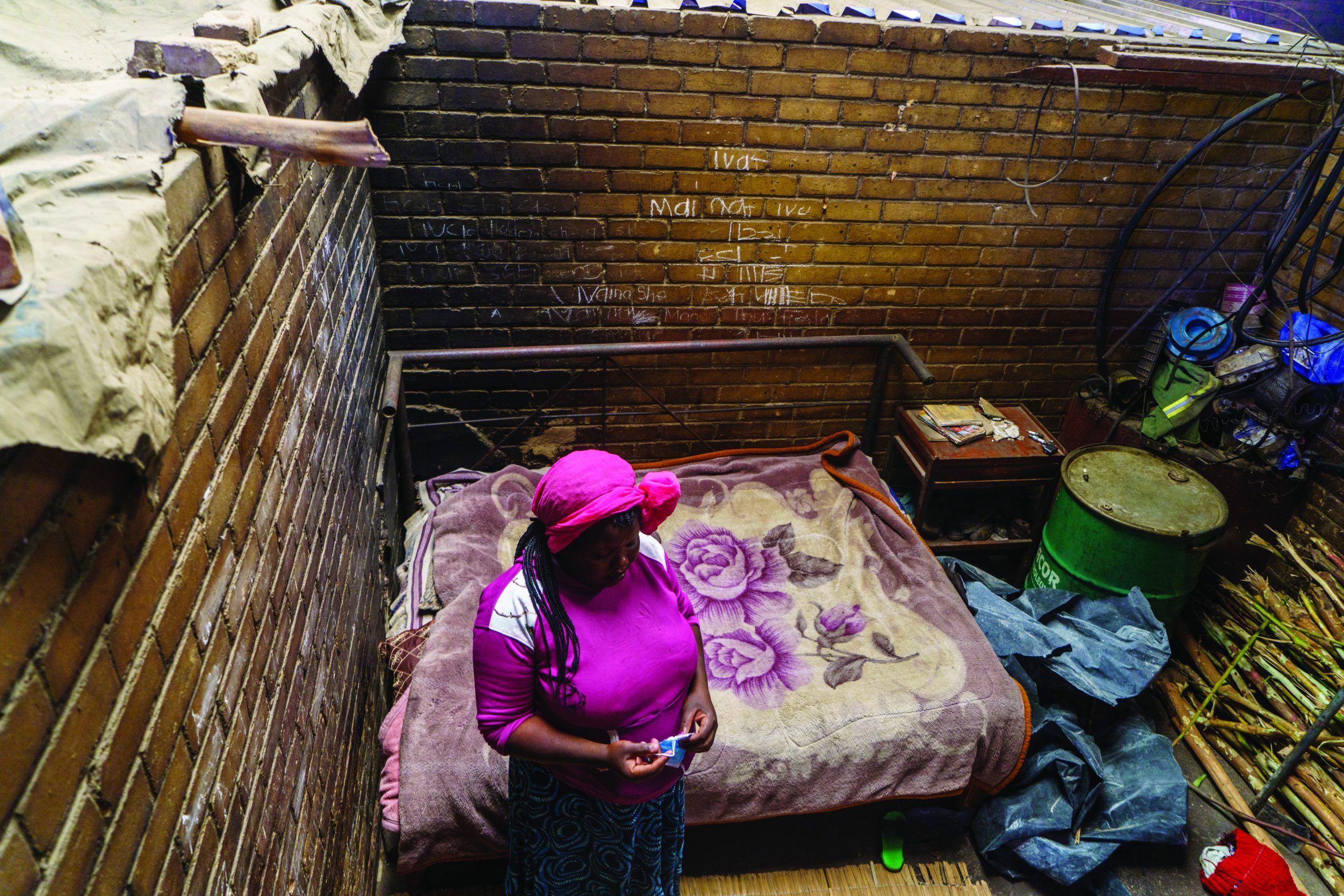Eleven dollars per month, per person. This modest amount of humanitarian aid from DanChurchAid makes a huge difference for 100,000 extremely poor people in Zimbabwe’s capital, Harare, and in the country’s second largest city, Bulawayo.
With payments made primarily through debit cards and mobile payments, families can buy food, medicine, groceries, and gas and thus find a glimmer of hope for a better future.
In parallel with the cash assistance, DanChurchAid supports entrepreneurship and small businesses in the hope that families will eventually earn an income on their own.
The extreme poverty
Poverty has long been a problem in rural Zimbabwe. According to the UN, extreme poverty has been prevalent also in the cities in recent years. Here, the urban population is plagued by unemployment, malnutrition, and hunger while a small, extremely rich elite controls the country with a firm grip.
Back when it achieved independence from Britain in 1980, Zimbabwe was regarded as “the Breadbasket of Africa” because of an impressive agricultural production making it one of the most efficient and prosperous countries in sub-Saharan Africa.
The social and economic collapse began around the turn of the millennium when one of the remaining injustices of colonial times was to be corrected: that white Zimbabweans, representing three percent of the population, owned about 70% of the most fertile land.
President Robert Mugabe gave the green light to accelerate land reforms. Paramilitary groups violently invaded large farms owned by white people, and a domino effect of problems and international sanctions led to the hyperinflation and poverty that are currently affecting the country.
Meet Janet Masiiwa
Heavily pregnant Janet Musiiwa lives with her husband, four children, and 200 other families on one of the former and now non-operating farms that are surrounded by the southern suburbs of the capital Harare. The family lives in a generously sized and architecturally beautiful horse stable that is now dilapidated and covered in dust. There is no electricity, running water, or sanitation.
The families share three toilets: holes in the ground that they themselves have dug. Some, like Janet Musiiwa, have their own batteries or solar cells, others do not. On the other hand, families pay no rent.

Janet Musiiwa moved here when she got married. Today, the family occupies two stalls. Half of one is furnished as a kitchen and dining room. The parents’ bedroom is behind a thin curtain. A car battery is the family’s only source of power, just enough to light a bare fluorescent tube. The bars of the stall are partially covered in cardboard and plastic to create a semblance of privacy.

The second stall is the children’s room. There is a large double bed for the little ones to share, space for storage, and an open fireplace in the corner. One of Janet Musiiwa’s sons has just been expelled from school because the parents have not paid the school fees. This happens a lot: “He begs us to go back; he really wants to go to school,” she says.

“Living here is OK” But Janet Musiiwa also recognises that she has no choice given that the family cannot afford to pay rent. They have no income other than what her husband can earn from time to time by helping one of the many trucks that illegally pick up sand in the area and sell it to construction sites. Now the family also gets cash from DanChurchAid. “Previously, we ate once a day, but now we can afford three meals.”

Janet Musiiwa’s dream is to open a small stand. She is inspired by a neighbour who has put out a table with a few packages of sanitary towels, a couple of bags of popcorn, a bunch of bananas, two baobab fruits, and candies wrapped in colourful paper. It is difficult to afford, says Janet Musiiwa, but she has a plan to save up the money her husband makes while she receives cash from DanChurchAid. She is aware that the family is living on borrowed time in the horse stable: “We have already received the first warning that we will soon be thrown out, but we have no place to go.”

On an abandoned chicken farm, worry has turned into a living nightmare for 86 families. Former employees say that when the farm was shut down a few years ago, workers’ homes were razed. All of a sudden, they all became unemployed and homeless.
With no other option, they moved into the abandoned hen house. Recently, it too was demolished; they now live in the middle of the rubble in makeshift tents made of branches and plastic bags. Alice Kenson explains that half of the families have neither money nor food. The other half have only the cash they receive from DanChurchAid. No children go to school any longer. The only thing that could make their situation worse is the rainy season. And it will be there soon.
DanChurchAid: 100 YEARS OF HOPE AND ACTION
2022 marks the 100th anniversary of DanChurchAid’s work to save lives, build resilient communities, and fight extreme inequality worldwide.
DCA’s anniversary is a story of 100 years of hope.

